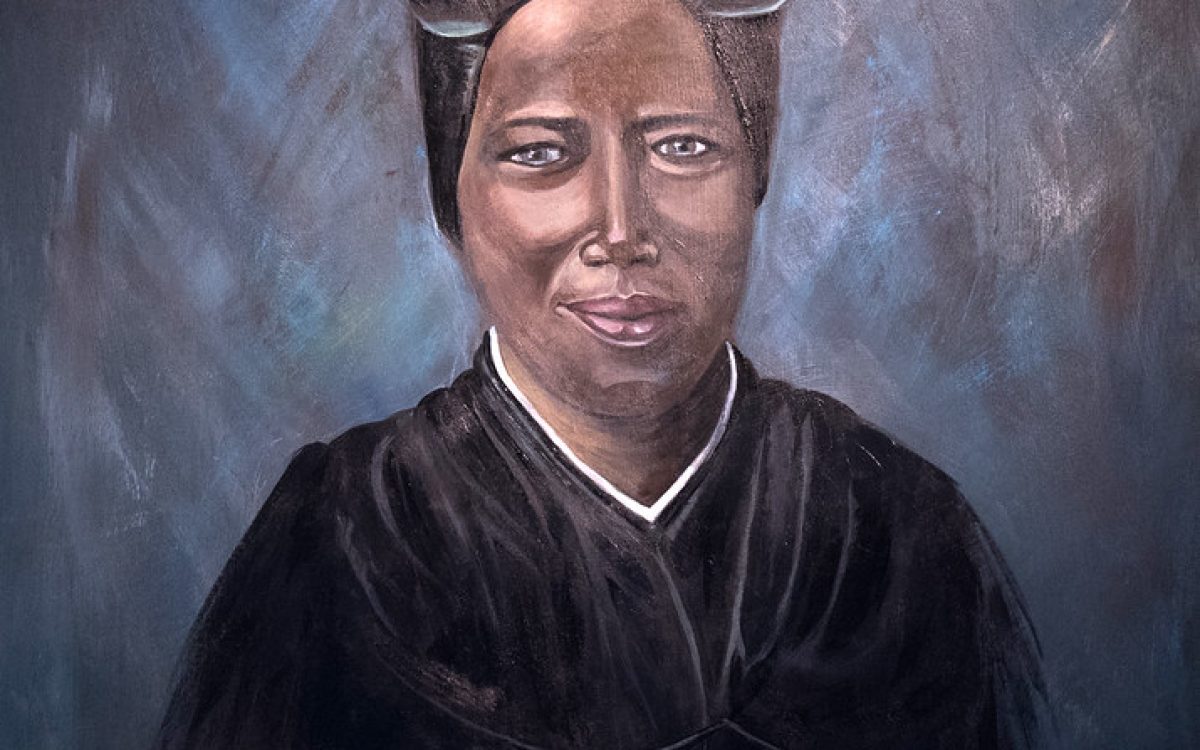This morning, our community celebrated the feast of saint Josephine Bakhita. An optional memorial in the Canadian and Roman calendars and, unfortunately, in both francophone and anglophone African Catholic calendars. Were it to be in any other continent, today – February 8 – would have been declared an obligatory memorial, if not a continental feast. But, as we often see, our own is not always valued because we know many saints celebrated in the continent who have no connection with the motherland. For this reason, we keep asking: when will we become a Church that respects our history and experience of God?
Josephine Bakhita is the first Sudanese saint. Born around 1869, she was sold into slavery around seven or eight. Born to a wealthy family, she had a happy childhood before danger stroke. She said of her childhood, “I lived a very happy and carefree life, without knowing what suffering was.” And, like her elder sister, she was kidnapped and sold by Arab slavers.
Though a child, they said she walked over 900 km before arriving at El Obeid. And during this horrific journey, Bakhita was sold twice. Later, she was sold three more other times. It is essential to underline that Bakhita was not her given name. During these long traumatic journeys, she forgot her given name and continued to bear Bakhita (بخيتة) (the) lucky (one) (the) fortunate, a name given to her by one of the slave masters.
Few of her recorded slave memories were horrific. So, while recalling her life with the fourth family that owned her, she said:
“During all the years I stayed in that house, I do not recall a day that passed without some wound or other. Then, when a wound from the whip began to heal, other blows would pour down on me.”
The punishment was so cruel that her life was like hell on earth. Bakhita explains the pain of receiving over 114 marks on her breast, belly, and right arm when talking about a scarification and tattooing ceremony performed on her and other slaves in these words: In her words, “I felt I was going to die any moment, especially when they rubbed me in with the salt,” (Dagnino, Maria Luisa, 1993, 52–53).
It was through the family of her fifth master, an Italian Vice Consul, Callisto Legnani, that Bakhita came to Italy, and even then, her ordeal was not yet over. Though the family of Callisto treated her well, she was later given to the family of one Augusto Michieli.
Bakhita met the Institute of the Daughters of Charity, known as the Connosa Sisters, through this last family. After spending time with them, she said: “Those holy mothers instructed me with heroic patience and introduced me to that God who from childhood I had felt in my heart without knowing who He was.” (Zanini, Bakhita, 91.)
She will later become a Connosa sister and will spend the rest of her life as a sewer, cook and porter, and took care of the poor. This took time, as the Michaeli family wanted to take her back to Sudan once they decided to return to Africa. The Connosa sisters had to involve the Cardinal and the royal governor, who insisted that since slavery was illegal in Italy, Bakhita was free to make her decision.
Before Bakhita died on 8 February 1947 in Schio, her biography was already published, and she spent years travelling from city to city, speaking about her ordeal. On 1 October 2000, Bakhita was canonized, becoming one of the saints with an unusual journey to sainthood. She is celebrated on February 8, the date of her death, as an optional memorial in the Roman Calendar. Unfortunately, February 8 is also considered an optional memorial in the African continent, where she should have been elevated as a model to our society, still under different forms of slavery. One wonders why 8 February remains an optional memorial in the continent. In every other church in the world, she should have been raised into a continental heroine as one of our few brothers and sisters whom our society failed and who succeeded in turning her story into a happy end. She is proof that despite our present circumstances as a continent, there is hope that God can still change our story for good. As she says: “If we had no hope in the Lord, what would we do in this world? What can we do if we have no hope that God can still save our continent from bad leaders and neocolonialism?
This quote from Afrol.com summarizes well the importance of this great daughter of Anawo, the pride of Oduduwa, Olodumare, and Chukwu-okike.
“Bakhita is truly the most African Saint, and her life story is a story of the Continent, concerning Catholics, Protestants, Muslims, or followers of traditional African religions. Yet, her spirituality and endurance make her Our Universal Sister.”






